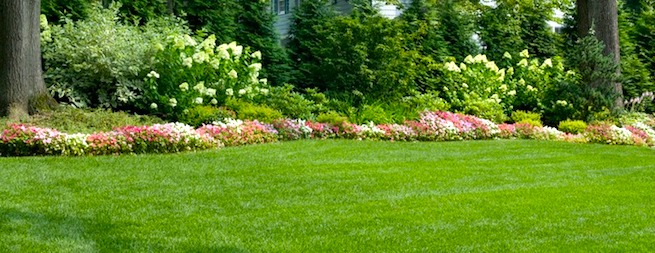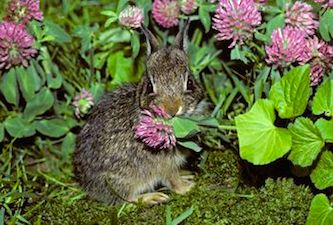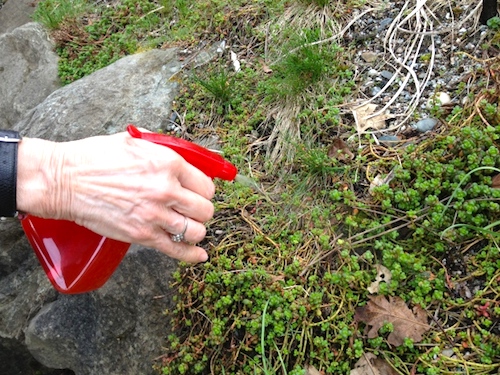10 Ways to Maintain Pest Control In Your Garden

There are plenty of rodents wondering amongst the shrubs in Arizona, so how do you keep your Garden free of them, and what tools should you use to accomplish proper pest control? Some of them are cute, but it’s not cute when they start munching on your freshly planted vegetables and chow down on your cactus root. Like it or not, these pests are not selective about what is yours and what is theirs. Your lawn and garden are a part of a bigger system, and it’s called the great outdoors. The animals were there first, now you need to eco-friendly ways of protecting your gardens from these Arizona pests.
While it’s not possible to make your garden 100% pest-proof, here are a couple of ways to minimize the nibbling and live peacefully with the wild rodents and pests of the Arizona desert. Here are some tips from our friends at Green Home (https://greenhomepest.com/) that has plenty of experience handling rodent and insect infestations.
#1 Find Out What The Pest/Rodent Is
Picking the right type of pest control will be easier if you know what is destroying your garden, maybe you need a trap and relocation mechanism, or maybe you need a trap that exterminates the rodent completely? Rodents that seem to create the fastest damage are rabbits, deer, and groundhogs. You can look for signs on the shrubs themselves to help better identify what it is that’s eating away at your garden. Deer can leave trails in the dirt and bite clean snips on crops or rip away at woody plants. Rabbits make sharp cuts on plants and might leave pellet droppings. Groundhogs leave big mounds of dirt 10″ to 12″ in diameter at the entry point of their burrows, typically eating greens, not woody shrubs. Birds peck holes in fruit or sneak it before you even know it is ripe.
#2 Fence The Garden In
Fencing is the most successful (and at times only!) way to keep unwanted rodents and pests out of your garden. Put a fence up from day one to keep them from discovering the food source at the first place. A fence that is a couple of feet tall will do the job for many rabbits, even, however, persistent bunnies and groundhogs may dig under. To stop that, bury it about 10″ deep. Chicken wire, hardware cloth, or bunny fencing would be the cheapest alternatives for smaller mammals. A stake post that is at least 4 ft tall will do the job for many deer looking to jump over and grub on your garden. However, if your area is overrun by deer, then you might need one that is 8 feet tall. Vinyl bird netting can be placed over trees with edible berries a few weeks before they ripen, to safeguard the fruit.
#3 Pick Plants The Animals Don’t Like
 Easier said than done. But if you know beforehand that there are roaming deer and rabbits wandering the property than a little research before planting your garden is highly recommended. When they are hungry enough and competition for food is large, animals will consume anything. But there are particular types of plants which are less attractive than others, particularly plants which are highly aromatic, fuzzy, or have prickles. Look around your area to find out what’s fared well, speak to nurseries, and consult some local farmers that have had success or battled the same pests in their gardens.
Easier said than done. But if you know beforehand that there are roaming deer and rabbits wandering the property than a little research before planting your garden is highly recommended. When they are hungry enough and competition for food is large, animals will consume anything. But there are particular types of plants which are less attractive than others, particularly plants which are highly aromatic, fuzzy, or have prickles. Look around your area to find out what’s fared well, speak to nurseries, and consult some local farmers that have had success or battled the same pests in their gardens.
#4 Protect Your Plants
Those new nursery plants, that are pampered and fertilized until you purchased them, provide yummy, tender new growth. Whether a plant is yummy or a deterrent to creatures has to do with all the nutritional supplement and compounds a plant generates. Plants recently bought from a nursery are superior in quality and are a preference for roaming animals. The animals can sense those micronutrients, and they are naturally attracted to them. New plants can’t take as much grazing harm as established plants, so fence off your new plants to protect them from the rodents and insects that may sense the new crops. Having proper pest control in place will be important for the survival of your young plant life.
#5 Elevate Your Plants With Risers
At times you may be able to eliminate the nibbling from rodents by elevating containers or planting in raised garden beds. A raised bed two feet or taller will restrict rabbit damage, and stop most smaller rodents from jumping up into the raised containers. While this is not necessarily pest control, it does act as a deterrent.
#6 Do Clear Out The Surrounding Foliage
If you can, allow the grasses and shrubs around the borders of your lawn/yard to go a little crazy. When there are other varieties of plant life available, your garden won’t be as appealing. Animals will not be as inclined to come out to your garden and expose themselves to predators when they can find food to eat in the outer perimeter. They would rather eat sheltered than in the open, so give them the option.
#7 Keep Your Mulch Contained
Open mulch piles attract all sorts of animals that then find the other delicacies growing in your garden. Use an enclosed compost bin with a lid to keep rodents and pests away. And should you feed your pets outside, make certain to bring their bowls indoors after they eat so that you won’t attract unwanted rodents and pests to your property.
#8 Scare Them
Metallic streamers, or bird tape, or an old-fashioned scarecrow can keep birds out of your garden, even though you may need to relocate and adjust daily as the birds wisen up. You can not let it just sit there. Otherwise, as soon as they get used to it, this technique loses its effectiveness. Also, try motion-activated sprinklers or lighting to detour rodents from your yard.
 #9 Repellants Work
#9 Repellants Work
Odor repellents are an option and can be sprayed on crops to keep animals away. Taste repellents can be sprayed on plants as well. When ingested these repellants create a foul experience and detour rodents from nibbling on your plants.
#10 Take It All In And Relax
The weather patterns change year to year, temperatures change, and life happens. Take a look around, make note of the changing earth that surrounds your property and understand it for what it is. Relax, don’t let pest control consume you, make an effort, move things around if needed, but don’t stress about it. After all, isn’t gardening supposed to be a stress reliever?
Want to move your existing Garden to your new home? Check out these tips on moving.